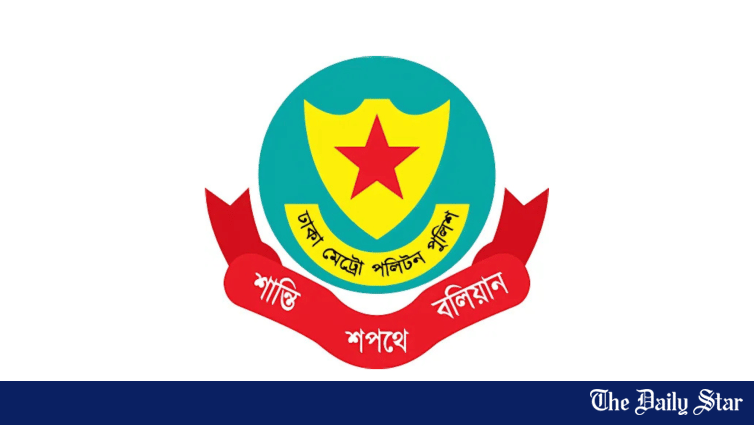Police reforms: Home plans glass walls, bodycams, legal overhaul
The home ministry plans to carry out a series of police reforms over the next six months to enhance transparency and accountability within the force and curb corruption and human rights violations by law enforcers.
The initiatives include the introduction of UN-prescribed crowd control measures and the installation of glass-walled interrogation cells at all 664 police stations in line with the recommendations of a reform panel.
Police stations will be required to accept general diaries and first information reports without delay. Besides, there won't be any police verification for government jobs or passport issuance unless an applicant faces specific allegations of involvement in anti-state activities.
A committee led by an additional secretary has drawn up an action plan, categorising the reforms into immediate, mid-term, and long-term ones.
The move comes around three months after the Cabinet Division sent the Police Reform Commission's recommendations to the ministry, asking it to formulate an action plan for their implementation.
The issue of police reforms came to the fore following the fall of the Awami League government through a mass uprising that left over 1,400 people dead -- many of them in police shootings.
Public trust in police has declined over the years, largely due to the controversial role of a section of officials during the past government's tenure. Many police officials have been accused of suppressing dissent through arbitrary arrests, torture, extrajudicial killings, and enforced disappearance.
On September 11, the interim government formed the Police Reform Commission which submitted its report on January 15 with a set of recommendations.
Joint Secretary Rebeka Khan, also member secretary of the committee, said reforms that could be implemented within six months were classified as "immediate", while those requiring six months to a year were categorised as "mid-term". Reforms needing more than a year were labelled as "long-term".
"Reforms involving multiple ministries or those with complex legal or financial implications will take longer to implement," Rebeka told The Daily Star.
Seeking anonymity, a top official at the police headquarters said the reform initiative overlooked some key areas.
"Reforms are needed to put in place a human resource management system that will ensure fair recruitment, postings and promotions based on honesty, qualification, skills, and seniority," the official said.
REFORMS WITHIN SIX MONTHS
New crowd control measures will be introduced to ensure that police personnel act with restraint, protect civilians, and maintain peace. They must adhere to strict rules of engagement based on a five-step use of force model followed by UN peacekeepers.
The approach to crowd control starts with visible presence and verbal warnings, escalating to non-lethal methods and minimal force only when necessary. Lethal force may be used as a last resort.
The ministry has informed the Cabinet Division that the advisory committee on law and order may review and decide in six months whether the Rapid Action Battalion remains necessary, given its controversial past and allegations of rights abuses.
The reform initiatives also include setting up of glass-walled interrogation cells in every police station to prevent custodial torture and deaths.
There have been allegations that law enforcers subject detainees to physical and mental torture during remand to get confessional statements and force their relatives to pay bribes.
Measures will be taken to ensure proper treatment of detainees and cleanliness in lockups at police stations and courts as well as in vehicles for prisoners. Female detainees must be interrogated respectfully in the presence of women officers.
There will be a bar on parading suspects at press briefings before courts deliver verdicts, and special cells will be set up at the offices of the chiefs of police units, allowing people to report rights violations and misconduct by law enforcers.
A guideline will be issued for police officers working in the hill areas to make sure that they respect local customs and social norms while enforcing law.
Ministry officials said the number of female police personnel will be increased to 28,248 from 16,801.
"We are committed to swiftly carrying out reforms that are currently feasible. Some initiatives are already underway," said Abu Momtaz Saad Uddin Ahmed, additional secretary at the home ministry.
MID-TERM PLAN
Police officers will be equipped with GPS devices and bodycams while on field duty.
An emergency hotline will be launched for citizens to lodge complaints against police officers for conducting unlawful searches or refusing to identify themselves or show warrants during operations.
Offices of coroners will be established in all eight divisional cities and doctors from upazila health complexes will be appointed as coroners to expedite investigations of cases filed over suspicious deaths or murders.
All officers managing traffic violations will be required to wear bodycams and police check posts will be brought under CCTV coverage.
LONG-TERM PLAN
The reform initiatives include establishment of an independent police commission; amendment to the colonial-era laws to make the force more accountable and people-friendly; enactment of laws to protect victims and witnesses; and setting up of forensic training institutes, digital forensic labs, and automated DNA laboratories in each division.
WHAT EXPERTS SAY
Omar Faruk, a professor of criminology and police science at Mawlana Bhashani Science and Technology University, termed the ministry's move a positive step towards upholding human rights and curbing corruption.
He also cautioned that if the relevant sections in the Police Acts, 1861, and the Police Regulations of Bengal, 1943, are not amended, there will be scope for future political governments to use the force to serve their interests.
Welcoming the decision to revoke police verification for government jobs, he said such a practice often fosters political bias by excluding individuals based on affiliations or ideologies.
Setting up of transparent interrogation cells at police stations will help curb custodial torture, while digital surveillance like bodycam for police officers will check harassment and corruption, he added.









